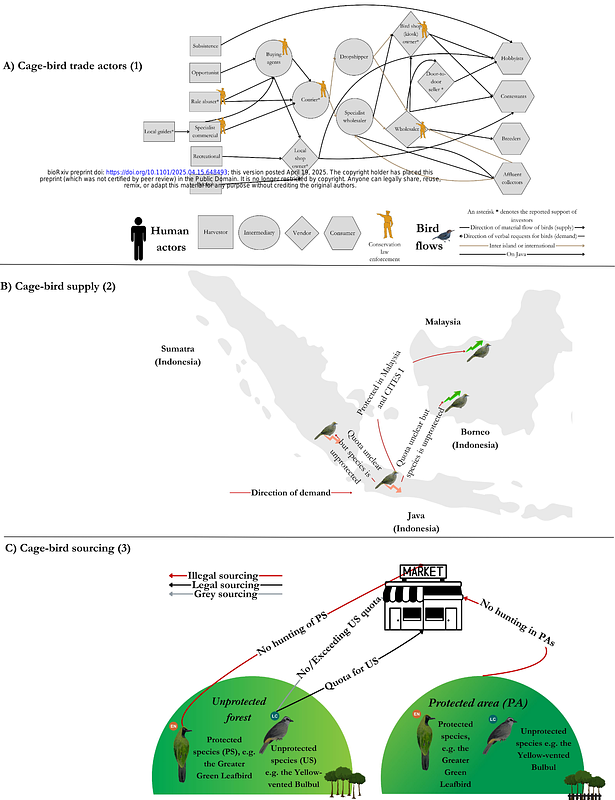A more-than-human political ecology of Indonesian songbird trade

A more-than-human political ecology of Indonesian songbird trade
Fiennes, S. B.; Hardianto, N.; Anaswari, S. D.; Damayani, L.; Haryono, J.; Jackson, T.; Dwiyahreni, A. A.; Birchall, C.; Holmes, G.; Hassall, C.
AbstractSince its conception as a discipline, conservation has considered the problem of wildlife trade. In focusing on conservation outcomes, we almost wholly omit discussions on the welfare of animals and plants, and the harms they endure. Here, we develop a political ecology approach that incorporates the interconnectedness of people with animals and natural habitats (more-than-human) to study the Indonesian bird trade, which is deeply culturally embedded, monetised and speciose. Bringing together marketplace observations, 1-1 interviews with experts, and focus groups with law enforcement, we map out the trade across three levels (actor, inter-actor and market level) to explore flows of birds, interactions, and power dynamics within this economy. We use a method that considers both human and bird perspectives to recognize birds as active participants with their own experiences Specifically, we acknowledge previously obscured harms experienced by birds like feather plucking, dismemberment, sinus infection, overcrowding, suffocation and death. Different forms of harm occur to birds in different parts of the supply chain and depend on the human actors with whom they are interacting. Loss of freedom occurs at harvest and physical/physiological harm during transit and at the point of trade. However, harms are lower for highly sought-after species, though they are difficult to source and are well cared for by affluent collectors, but harms are higher when demand is high, and supply-side factors lead to broad harvesting with lower consideration of welfare. Our findings also indicate that men of different classes engage with birds for various reasons, such as for socialisation, investment and connecting with Javan traditions. We use this interdisciplinary approach to highlight the harms birds experience during the wildlife trade, relating to the Five Domains welfare model. Critical to understanding the harms endured are issues surrounding class, gender and culture in Indonesia, and other IWT contexts.